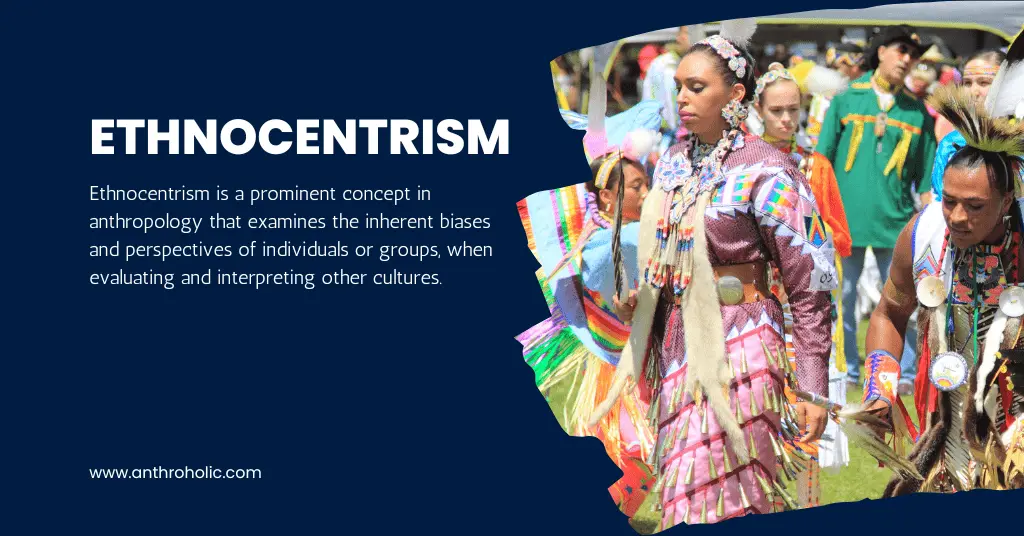Ethnocentrism is a sociological term that refers to the tendency of individuals to view the world primarily through the lens of their own cultural perspective. This practice often leads to the belief that one’s own culture is superior to others, impacting social interactions and perceptions around the globe. The notion of ethnocentrism can manifest in various forms, from casual biases to systematic discrimination. Understanding this concept is crucial for fostering a more inclusive worldview and mitigating social tensions among diverse cultures.
At its core, ethnocentrism can be categorized into several types, including cultural, national, and preferential ethnocentrism. Cultural ethnocentrism, which dominates much of everyday life, manifests when individuals assess other cultures using the standards and values of their own. This evaluation may result in stereotyping, misrepresentation, or derogatory comparisons that can hinder intercultural communication. For instance, a person from a Western society may perceive communal practices in Eastern cultures as primitive rather than appreciating them as culturally significant approaches to fostering community.
National ethnocentrism extends this concept by framing loyalty to one’s country as the ultimate guiding principle. Individuals possess a natural inclination to interpret the actions of foreign nations through a nationalistic lens. This perspective can lead to misunderstandings and strain diplomatic relationships between nations. Such tendencies can escalate into xenophobia and protectionism, leading people to reject foreign influence altogether, ultimately stifling cultural exchange and cooperation.
Preferential ethnocentrism, on the other hand, focuses on individual preferences stemming from one’s cultural upbringing. This construct reveals itself in nuances, such as the foods a person enjoys, the values they hold dear, or their aesthetic choices. While preferences are intrinsic to identity, when they extend into dismissing alternative lifestyles, they broaden the rifts between cultures rather than promote understanding.
The implications of ethnocentrism can be profound and multifaceted. One notable impact is that it fosters social hierarchies based on perceived cultural superiority. Societies often create hierarchies that privilege certain cultures over others, leading to systemic discrimination. For instance, in industries such as fashion and media, Western standards of beauty often overshadow and delegitimize diverse aspects of aesthetic value found in other cultures. This bias not only diminishes representation but also perpetuates the misconception that Western culture is the ideal to aspire to.
Moreover, education plays a pivotal role in either perpetuating or combating ethnocentric attitudes. Curricula often lack emphasis on pluralistic narratives and, instead, delve into Eurocentric histories. This educational approach can engrain ethnocentric views in students from an early age, fostering an environment where cultural ignorance flourishes. In contrast, an inclusive educational framework that embraces intercultural dialogue can dismantle preconceived notions, encouraging students to appreciate and assimilate diverse worldviews.
One of the inherent challenges of addressing ethnocentrism lies in the natural human tendency to gravitate toward familiarity. People are often drawn to their cultural norms, leading to an unconscious bias against practices that deviate from the established standard. This comfort in uniformity can breed resistance when confronting diverse perspectives, making it essential to develop intercultural competencies that facilitate richer interactions across cultural divides.
Countering the effects of ethnocentrism requires proactive engagement and a willingness to embrace cultural relativism. Cultural relativism posits that a culture must be understood from its own context rather than through the prejudiced lens of another. By fostering cultural relativism, individuals can challenge their initial perceptions and expand their understanding of various cultural practices and belief systems. This intellectual shift fosters empathy and respect, essential qualities for thriving in a globalized world.
In practice, embracing cultural relativism begins with introspection. Individuals must become aware of their biases and actively work to acknowledge the validity of others’ experiences. Engaging with diverse cultures through travel, literature, art, and culinary experiences can serve as a catalyst for growth. Exposure to different ways of life can dispel preconceived notions and contribute to a more nuanced and empathetic understanding of humanity’s rich tapestry.
Organizations and institutions must also take initiative by actively promoting inclusivity in their policies and practices. For instance, businesses can adopt cultural competency training that empowers employees to engage with global clients respectfully and knowledgeably. By creating an environment where diverse voices are valued and respected, organizations contribute to diminishing ethnocentric attitudes in the workplace and beyond.
The response to ethnocentrism is not merely an academic exercise; it has tangible repercussions for social cohesion and global peace. In an era marked by globalization, where intercultural encounters are inevitable, cultivating an open-minded approach can build bridges across divides. As societies become increasingly interconnected, overcoming ethnocentrism is vital for addressing collective challenges, be it climate change, social injustice, or economic disparity.
In conclusion, ethnocentrism is a pervasive phenomenon that significantly influences personal and societal perspectives. Recognizing its various manifestations and impacts empowers individuals and communities to re-evaluate their views. By embracing cultural relativism and fostering meaningful exchanges across cultural boundaries, society can cultivate a more inclusive environment that respects and celebrates the diversity of human experience. As individuals grapple with their biases, they contribute not only to their personal growth but also to a broader movement towards global understanding and progress.
